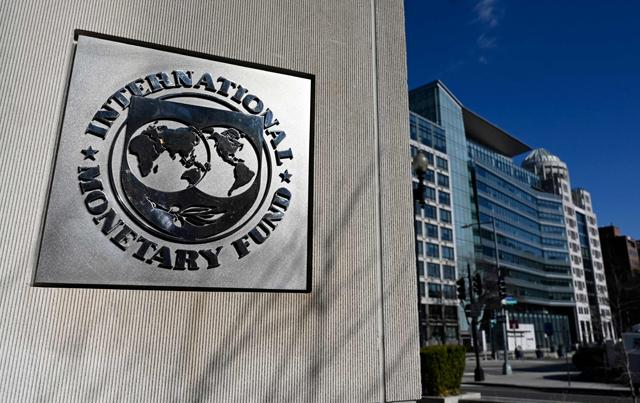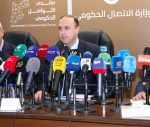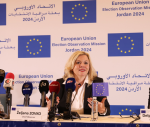You are here
Debt-ridden Zambia votes in closely contested, democracy-testing polls
By AFP - Aug 12,2021 - Last updated at Aug 12,2021

Zambian presidential candidate for the opposition, Hakainde Hichilema ( centre right) of the United Party for National Development (UPND) casts his ballot at a polling station in Lusaka on Thursday (AFP photo)
LUSAKA — Zambians voted Thursday in closely contested presidential and legislative elections seen as test of the country's democractic credentials after a tense campaign dominated by economic woes and a debt crisis.
Sixteen candidates are vying for the top job, but the frontrunners are incumbent Edgar Lungu, 64, and his long-time rival Hakainde Hichilema, a business tycoon, who are facing off at the polls for the third time. Hichilema, 59, who is running for a sixth time, is backed by an alliance of 10 parties.
One of the first to cast a ballot after polls opened at 6 am (04:00 GMT), Lungu exuded confidence that he would retain the job he has held for the past six years in the copper-rich southern African country. "We are winning, otherwise I wouldn't have been in the race if we were not winning," the upbeat Lungu told reporters outside a nursery school in Chawama, a poor neighbourhood of Lusaka.
But his main rival, nicknamed HH and also affectionately referred to by his supporters as Bally, a slang term for father, was equally confident of victory.
Rising living costs
"We are confident that we will carry the day," he said after voting at a secondary school in a leafy suburb of Lusaka. "People want change -- you can see it in their faces," he told reporters as supporters crowding around him chanted "Bally! Bally!"
Addressing opposition fears of fraud, Hichilema said Zambia's next leader "must be determined by the... voters, not the people who count the votes". One of his campaign posters making the rounds on social media read "BWM - Bally Must Win".
By afternoon the country was experiencing a partial internet shutdown, with global internet observatory NetBlocks confirming that "social media and messaging platforms including Twitter, Facebook, Instagram and Messenger are now restricted".
The government had threatened to cut off internet access if people peddled "falsehoods that could destabilise" the election.
The vote "is a test of democracy in Zambia, it is a test ultimately of how fair and freely" the electoral commission will run it, said political economist Trevor Simumba, adding that the "real test will be in the counting process".
A flagging economy and rising living costs have eroded the incumbent's support base in recent years, surveys suggest.
Lungu is accused of borrowing unsustainably, particularly from Chinese creditors, to finance a spree of infrastructure projects.
Under him, Zambia became the first African country to default on its sovereign debt since the coronavirus pandemic began, while inflation soared to 24.6 percent in June, the highest rate in more than a decade. Winding queues of hundreds of people formed before dawn outside polling stations, hours before voting was to open.
Midway through the voting day in Lusaka's working-class Mtendere township, hundreds of voters patiently waited for their turn to cast ballots, chatting or sucking on popsicles sold by a roving vendor. The atmosphere was relaxed and festive, with nearby taverns serving beer while music blasted from cars driving in heavy traffic on bumpy roads. Copper miner Thomas Wandu, 41, had been queueing for seven hours to vote for Lungu.
"Underground, things are not how they are supposed to be," he said, referring to what he described as low and delayed wages by his Chinese employers.
Zambia is the second biggest producer of copper in Africa after the Democratic Republic of Congo, and the world's eighth producer. 'Hoping for change'
Lungu's critics point to poverty and joblessness in the midst of glittering infrastructure. In Chamawa township, unemployed school teacher Ernest Chimba, 35, was "hoping for change... because the cost of living in Zambia has gone really high".
Lungu and Hichilema supporters clashed in the runup to voting, prompting Lungu to order an unprecedented deployment of the army. Around seven million citizens are eligible to vote for a president, legislators and local government representatives.
The winning candidate must acquire more than 50 per cent of votes to avoid a second-round runoff.
UN chief Antonio Guterres is "closely" following the vote and called on all candidates "to do their part to create an environment conducive to credible, inclusive and peaceful elections", his spokesman Stephane Dujarric said.
Polls close at 6 pm (16:00 GMT) at more than 12,000 voting stations across the vast country. Official results were expected by Sunday.
Related Articles
LUSAKA — Campaigning was winding down Wednesday on the eve of Zambia’s tightly fought presidential and legislative elections being held agai
WASHINGTON — The International Monetary Fund (IMF) said on Saturday that an agreement by Zambia's creditors to restructure the African count
YANGON — At least 18 anti-coup protesters were killed Sunday in one of the deadliest days since Myanmar was thrust back under military rule,
















